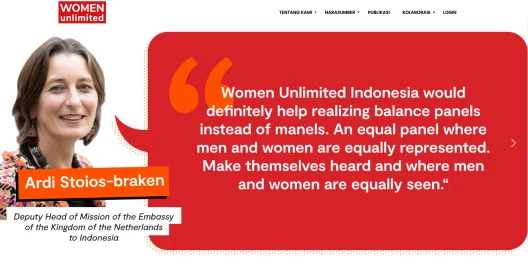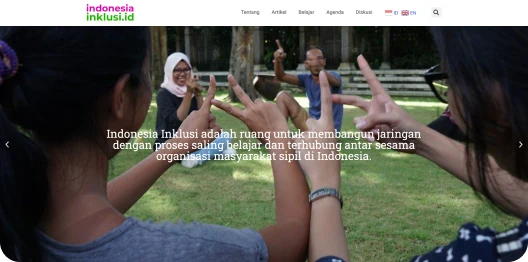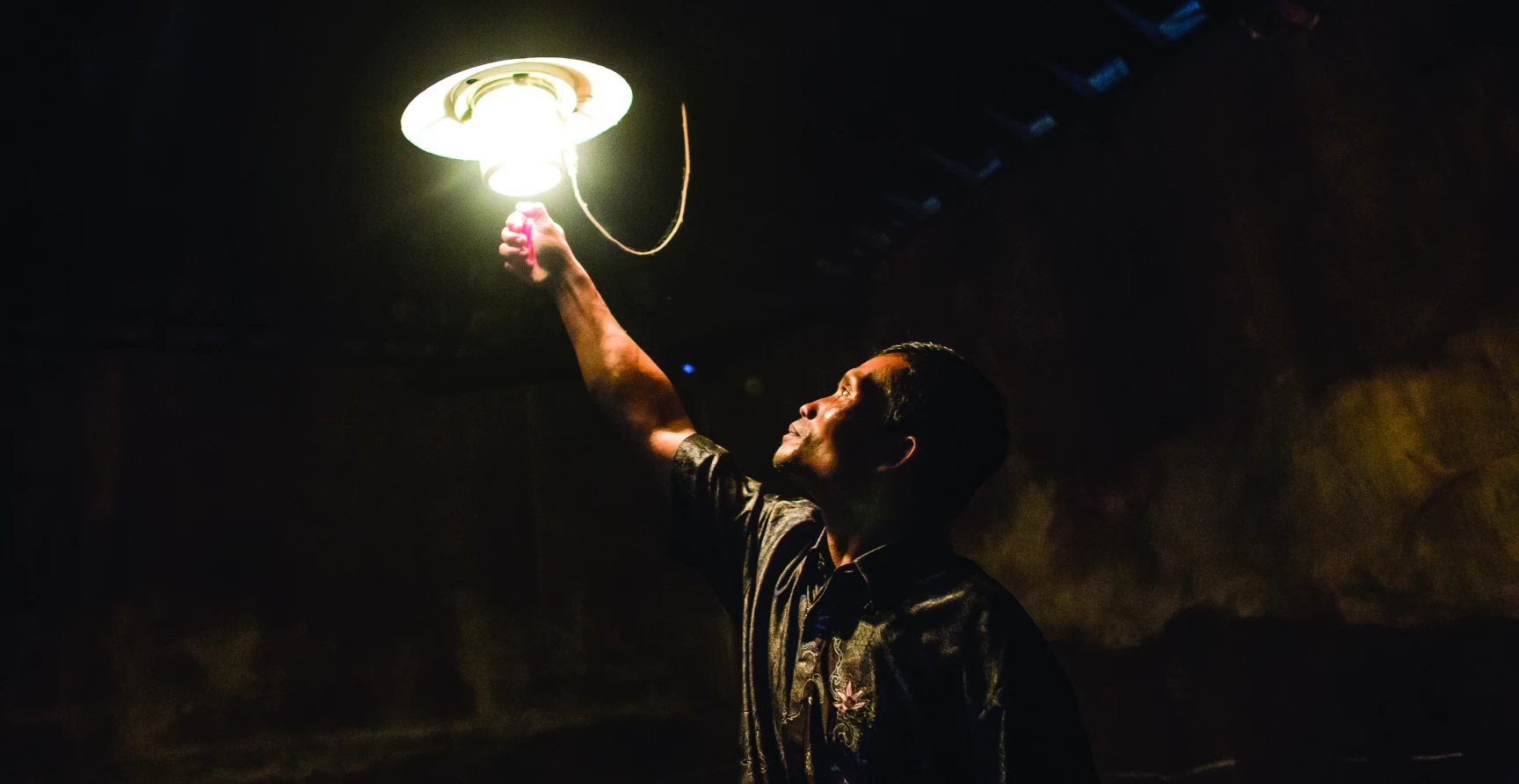
What We Do
Impact Areas
Gender Equality, Diversity and Inclusion (GEDI)
Across the world, we see profound challenges: shrinking civic space and freedoms; multiplying divisive narratives; increasing exclusion of the most marginalized; collapsing trust in democratic institutions. These challenges are magnified by the rapid, unequal digitalization of our societies. Yet, we also see critical opportunities to bolster the people, initiatives and organizations that confront these challenges with powerful alternatives. These are the opportunities we want to seize to create the civic societies we need now and in the future.
Our Approach:
Intersectionality
We acknowledge and analyse using intersectionality lens the multi identity of the rightsholder groups that exacerbates multilayered discrimination against the rights to citizen access. Having intersection rightsholder groups help us in the process of linking and learning among society and strengthen the collective advocacy agenda.
Feminist Leadership
Our ambition is that rightsholder groups, develop individual and collective capacities to lead social inclusion with feminist principles as innovators, facilitators, and advocates of social justice issues at the local, national, and global levels. This includes gaining access to resources, capacity building, networking, knowledge exchange, and alliance building.
Safe Space
Safe space allows openness from the engaged parties to listen, speak up, and collaborate. Safe space is defined not only as physical and virtual forums or platforms but also as a holistic condition where supportive policies are in place and sustained.
Community of Action
We create communities of action, practice, and stakeholders bas ed on the context to explore the urgent needs, address the priorities, and fill the gaps
Linking and Learning
We advance learning to be documented and streamlined on every occasion as our commitment to creating innovation. Through the creation of a safe space to trigger meaningful dialogue and engagement as well as breaking the silo among rightsholder groups and key stakeholders, It is expected that the linking and learning approach can realize peoplecentered design in policymaking.
Creative Intervention
We explore creative intervention in our works to find the right fit in achieving our goals to communicate the purposes to our rightsholder groups and key stakeholders as well as the wider society. Through arts and other creative ways of engaging social justice issues, we believe the awareness will be spread wider and solidarity can be stronger.
Civic Rights in A Digital Age (CRIDA)
Our ambition is that rightsholder groups can safely and effectively use digital and nondigitalpublic spaces to exercise their civic rights to expression, assembly, information,privacy, and political participation to achieve more inclusive and sustainable societies.We believe that it is critical to protect, strengthen and expand civic space for women,youth, and marginalized groups to voice their demands and hold the government,private sector, and powerholders to account.
Digital Rights for Social Accountability
We support rightsholder groups to access and use digital and non-digital spaces and infrastructure including data, social media, and mainstream media to engage with powerholders.
Safety and Rights to Privacy
We facilitate efforts to ensure that the state and digital platform companies respect and protect the privacy rights of the rightsholder groups from surveillance, illegal monetization, defamation, and criminalization.
Sound Policy and Regulation
We aim that decision makers have improved policy and regulations that guarantee the rule of law in which people are safely involved in public oversight, critical dialogue, and decision-making processes.
Creative Counter Narratives
We support initiatives that enlist artists, content creators and social innovators to assist rightsholder groups in creating strong narratives against intolerance and the spread of illegal hate speech, fake news, and fear.
Climate Justice
The aim of our climate justice program is that the groups most affected by climatechange, including women, youth, indigenous people, farmers, fisherfolk, and personswith disability, are resilient and empowered to lead climate action. Our ambition isthat empowered rightsholder groups are at the center of climate actions, policies, andprograms, working with other stakeholders at local, national, and international levelsto identify and implement just and equitable solutions and holding powerholders toaccount.
Our approach:
Promoting leadership and voice
We support rightsholders, including women and youth, to develop individual and collective capacities to lead climate action as innovators, facilitators, and advocates of climate solutions at the local, national, and global levels. This includes gaining access to resources, capacity building, networking, knowledge exchange and alliance building.
Facilitating co-creation, innovation, and social entrepreneurship
We engage multiple stakeholders including social innovators and rightsholder groups to co-create and demonstrate sustainable locally based climate solutions, including those that provide access to clean energy and food security. We help to convene inclusive multi-actor initiatives to identify, pilot and demonstrate inspiring models for climate action that can be replicated and scaled.
Humanizing Climate Crisis
We support efforts to shift public narratives and debate on climate change away from the environment and ecology to focus more on climate justice and the impacts of climate change on rightsholder groups. We work with media and youth influencers to highlight the causes and consequences of climate injustice, the resilience of affected groups, and the importance of involving them as agents for change in developing climate solutions.
Supporting lobby and advocacy for inclusive and transparent policy and creating an enabling environment (i.e. sustainable value chains, access to finance) for climate justice
The Foundation seeks to build on our strengths in promoting innovation in our renewable energy and sustainable food system programs to provide convincing evidence for policy change.
Programs
Gender Equality, Diversity and Inclusion (GEDI)
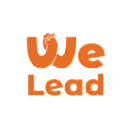
Women’s Voice and Leadership (We Lead)
Women’s Voice and Leadership (We Lead) program (2019-2023) 2019 focuses on efforts to support the capacity of women’s organizations, communities, and collectives at the local and national levels to fulfill the rights and empower women, girls, and marginalized groups, and also to promote gender equality. The national consortium members include Humanis Foundation, Just Associates, FAMM Indonesia, Fahmina Institute, Perempuan Mahardhika, Rahima, and Rumah KitaB.
In the implementation, these seven institutions have collaborated with and reached out to 237 communities/organizations/collectives in 96 districts/cities in 30 provinces in Indonesia. The project is implemented with support from the Global Affairs Canada.
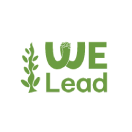
Women’s Voice and Leadership (We Lead) Tana Papua
We Lead Tana Papua project is a two-year initiative aimed to advance gender equality and women’s leadership as a catalyst for elevating public awareness and engagement with young women activists on climate change issues in Papua.
By the end of 2025, the project envisions a strengthened role of Papuan young women in leadership and action regarding land-use and climate issues. Since November 2023, Humanis has been working with three organizations (Forum Aktivis Perempuan Muda Indonesia, Koalisi Kampus untuk Demokrasi Papua, and Lembaga Pengkajian Pemberdayaan Perempuan dan Anak Papua) to facilitate capacity and network-building activities in Jayapura city and Keerom district. The project is implemented by Humanis with support from the Climate and Land Use Alliance (CLUA).
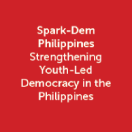
Strengthening Youth-Led Democracy in the Philippines (SPARK DEM PH)
SPARK DEM PH is a project implemented by Yayasan Humanis & Inovasi Sosial (Humanis) with support from the Open Society Foundations. The project is managed under Humanis’ GEDI impact area as part of its Innovation Grant.
The project focuses on empowering youth political participation and civic engagement in the Philippines. For the project direct implementation, Humanis is working with three partner organizations based in the Philippines: Young Public Servants (YPS), Hirayang Kabataan (HK), and AHA! Behavioral Design (AHA) since September 2023
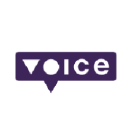
VOICE
Voice is an innovative grant facility to support rightsholders and groups facing marginalization or discrimination in their efforts to exert influence in accessing productive and social services and political participation. Voice operates in a context where civic space and power is shifting at a fast pace, and often closing rather than opening. Where the narrative is negative and underlining marginalization and vulnerability, rather than the dreams and successful steps made towards a better, more inclusive world.
Voice is implemented in ten countries in Africa and Asia. Voice aims to Within Voice catalyze transformative change for the most marginalized and discriminated groups through all of its activities. The process, intersection, and interaction within the programs in turn boost collaboration, exchange, learning, innovation and application of new knowledge.
Women’s Voice and Leadership (We Lead) program (2019-2023) 2019 focuses on efforts to support the capacity of women’s organizations, communities, and collectives at the local and national levels to fulfill the rights and empower women, girls, and marginalized groups, and also to promote gender equality. The national consortium members include Humanis Foundation, Just Associates, FAMM Indonesia, Fahmina Institute, Perempuan Mahardhika, Rahima, and Rumah KitaB.
In the implementation, these seven institutions have collaborated with and reached out to 237 communities/organizations/collectives in 96 districts/cities in 30 provinces in Indonesia. The project is implemented with support from the Global Affairs Canada.
We Lead Tana Papua project is a two-year initiative aimed to advance gender equality and women’s leadership as a catalyst for elevating public awareness and engagement with young women activists on climate change issues in Papua.
By the end of 2025, the project envisions a strengthened role of Papuan young women in leadership and action regarding land-use and climate issues. Since November 2023, Humanis has been working with three organizations (Forum Aktivis Perempuan Muda Indonesia, Koalisi Kampus untuk Demokrasi Papua, and Lembaga Pengkajian Pemberdayaan Perempuan dan Anak Papua) to facilitate capacity and network-building activities in Jayapura city and Keerom district. The project is implemented by Humanis with support from the Climate and Land Use Alliance (CLUA).
SPARK DEM PH is a project implemented by Yayasan Humanis & Inovasi Sosial (Humanis) with support from the Open Society Foundations. The project is managed under Humanis’ GEDI impact area as part of its Innovation Grant.
The project focuses on empowering youth political participation and civic engagement in the Philippines. For the project direct implementation, Humanis is working with three partner organizations based in the Philippines: Young Public Servants (YPS), Hirayang Kabataan (HK), and AHA! Behavioral Design (AHA) since September 2023
Voice is an innovative grant facility to support rightsholders and groups facing marginalization or discrimination in their efforts to exert influence in accessing productive and social services and political participation. Voice operates in a context where civic space and power is shifting at a fast pace, and often closing rather than opening. Where the narrative is negative and underlining marginalization and vulnerability, rather than the dreams and successful steps made towards a better, more inclusive world.
Voice is implemented in ten countries in Africa and Asia. Voice aims to Within Voice catalyze transformative change for the most marginalized and discriminated groups through all of its activities. The process, intersection, and interaction within the programs in turn boost collaboration, exchange, learning, innovation and application of new knowledge.
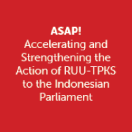
ASAP! Accelerating and Strengthening the Action of RUU-TPKS to the Indonesian Parliament
Through ASAP! Project, the Foundation, and partners have strengthened the capability of CSOs, women’s organizations, and young feminist-led communities in developing policy documents and strategic campaigns on RUU PKS.
Some progressive members of parliament (MPs) reached out to gain their input and find a strategy for gaining more support from other MPs and political leaders. We worked with law experts and university students to strengthen the legal arguments and support from academic groups.As part of getting more public and countering the anti-gender narrative from conservative groups, this project has also worked with religious leaders. The ASAP consortium partners play a significant role in offering a pro-victim perspective while assuring them of the strong public support.Fresh air and the victory of the struggle of all parties are real in the effort to prevent sexual violence, especially in the handling and recovering of victims of sexual violence.
The ratification of the Sexual Violence Law (UU) on April 12, 2022,needs appreciation after eight years of discussion in parliament and it is a form of state presence in protecting victims of sexual violence.
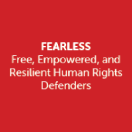
Fearless! Free, Empowered, and Resilient Human Rights Defenders
The FEARLESS project is intended to support the fulfillment of the rights of human rights defenders (HRDs) and CSOs to protect and promote human rights, particularly related to sexual orientation, gender identity and expression, and sex characteristics (SOGIESC). The project contracted by the EU to Hivos and implemented by the has successfully produced several modules in HRDs protection mechanism and SOGIESC rights that applied to several trainings for students, law experts, and HRDs across regions in Indonesia.
The project has established an Inclusion Task Force comprised of high-level members from governmental units and political parties. The project also convened lawyers in Southeast Asia to initiate a sustainable network in defending SOGIESC-based rights.
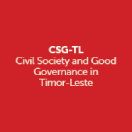
CSG-TL Civil Society and Good Governance in Timor-Leste
The CSG project in Timor-Leste aims to strengthen the capacity and alliance of Timorese CSOs to better and effectively advocate the rights of the citizens through research and analysis that can be compelling evidence of the advocacy agenda and dissemination materials to the public. The project also supports the elimination of gender-based violence to Timorese women through providing direct support to women victims and survivors including trauma healing counseling, and training for income-generating activities and community organizing.
The project also plays an important role in the development discourse in Timor-Leste by analyzing, educating, and advocating about Timor-Leste’s unsustainable oil and gas dependency and lack of alternative economic development for more than a decade.
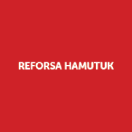
Reforsa Hamutuk
Reforsa Hamutuk is a project with the overall objective of promoting social inclusion and economic development for women survivors and victims of violence in Timor-Leste.
The project aims for women survivors and victims of conflict and gender-based violence to have equal access to technical and management training and support to develop their enterprise activities, including life skills, vocational training, and employment opportunities. Several modules have been developed and trainings have been delivered to capacitate the target groups with ample skills and knowledge in women entrepreneurship.
Through ASAP! Project, the Foundation, and partners have strengthened the capability of CSOs, women’s organizations, and young feminist-led communities in developing policy documents and strategic campaigns on RUU PKS.
Some progressive members of parliament (MPs) reached out to gain their input and find a strategy for gaining more support from other MPs and political leaders. We worked with law experts and university students to strengthen the legal arguments and support from academic groups.As part of getting more public and countering the anti-gender narrative from conservative groups, this project has also worked with religious leaders. The ASAP consortium partners play a significant role in offering a pro-victim perspective while assuring them of the strong public support.Fresh air and the victory of the struggle of all parties are real in the effort to prevent sexual violence, especially in the handling and recovering of victims of sexual violence.
The ratification of the Sexual Violence Law (UU) on April 12, 2022,needs appreciation after eight years of discussion in parliament and it is a form of state presence in protecting victims of sexual violence.
The FEARLESS project is intended to support the fulfillment of the rights of human rights defenders (HRDs) and CSOs to protect and promote human rights, particularly related to sexual orientation, gender identity and expression, and sex characteristics (SOGIESC). The project contracted by the EU to Hivos and implemented by the has successfully produced several modules in HRDs protection mechanism and SOGIESC rights that applied to several trainings for students, law experts, and HRDs across regions in Indonesia.
The project has established an Inclusion Task Force comprised of high-level members from governmental units and political parties. The project also convened lawyers in Southeast Asia to initiate a sustainable network in defending SOGIESC-based rights.
The CSG project in Timor-Leste aims to strengthen the capacity and alliance of Timorese CSOs to better and effectively advocate the rights of the citizens through research and analysis that can be compelling evidence of the advocacy agenda and dissemination materials to the public. The project also supports the elimination of gender-based violence to Timorese women through providing direct support to women victims and survivors including trauma healing counseling, and training for income-generating activities and community organizing.
The project also plays an important role in the development discourse in Timor-Leste by analyzing, educating, and advocating about Timor-Leste’s unsustainable oil and gas dependency and lack of alternative economic development for more than a decade.
Reforsa Hamutuk is a project with the overall objective of promoting social inclusion and economic development for women survivors and victims of violence in Timor-Leste.
The project aims for women survivors and victims of conflict and gender-based violence to have equal access to technical and management training and support to develop their enterprise activities, including life skills, vocational training, and employment opportunities. Several modules have been developed and trainings have been delivered to capacitate the target groups with ample skills and knowledge in women entrepreneurship.
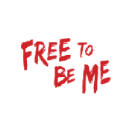
Free To Be Me
Free to be Me is an innovative program that aims at building vibrant civil society movements that are confident and able to lobby and advocate for human rights and economic rights. Free to be Me aims to bring together organizations and individuals that will contribute to advancing the leadership of gender and sexual diverse individuals, leadership in advocating for social and economic rights and bring an alliance of organizations who are experienced and strongly committed to improving the lives of vulnerable and minority groups worldwide.
The Free to be Me is being implemented in twelve (12) countries in South-east Asia, the Middle East and North Africa, and East, Southern and West-Africa through an alliance of committed and experienced organizations worldwide. We aim to bring gender and sexual diverse individuals and organizations from all parts of the groups together in inspiring Communities of Action (CoAs), and empower them to strengthen or build a movement. Within our overarching Theory of Change (ToC), the CoAs decide about objectives, strategies and activities to engage key actors and convince duty bearers to improve their human and economic rights.
Free to be Me is an innovative program that aims at building vibrant civil society movements that are confident and able to lobby and advocate for human rights and economic rights. Free to be Me aims to bring together organizations and individuals that will contribute to advancing the leadership of gender and sexual diverse individuals, leadership in advocating for social and economic rights and bring an alliance of organizations who are experienced and strongly committed to improving the lives of vulnerable and minority groups worldwide.
The Free to be Me is being implemented in twelve (12) countries in South-east Asia, the Middle East and North Africa, and East, Southern and West-Africa through an alliance of committed and experienced organizations worldwide. We aim to bring gender and sexual diverse individuals and organizations from all parts of the groups together in inspiring Communities of Action (CoAs), and empower them to strengthen or build a movement. Within our overarching Theory of Change (ToC), the CoAs decide about objectives, strategies and activities to engage key actors and convince duty bearers to improve their human and economic rights.
Civic Rights in A Digital Age (CRIDA)
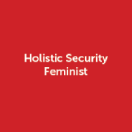
Holistic Security Feminist
Building Digital Security Capacity within Women and Minority Rights Defenders Community is a project aimed to improve the capacity and access of women and diversity of gender and sexuality communities (especially in non-Java Island) to safety and security of their operation in the face of emergency and emerging digital and non-digital threats.
This includes demands to mitigate threats surging from surveillance, internet shutdown, physical attacks, defamations, arrest and criminalization at human rights defenders (HRDs) and rights holders level, and simultaneously, coordinated support among the safety and security provider organizations in broader context. The crackdown of civic actors in defending their rights has been growing over the years. The rising authoritarian and semi-authoritarian regimes in several countries that devised the Covid-19 pandemic for their interests has exacerbated the threats and attacks towards civil society organisations and human rights defenders (HRDs).
Building Digital Security Capacity within Women and Minority Rights Defenders Community is a project aimed to improve the capacity and access of women and diversity of gender and sexuality communities (especially in non-Java Island) to safety and security of their operation in the face of emergency and emerging digital and non-digital threats. This includes demands to mitigate threats surging from surveillance, internet shutdown, physical attacks, defamations, arrest and criminalization at human rights defenders (HRDs) and rights holders level, and simultaneously, coordinated support among the safety and security provider organizations in broader context. The crackdown of civic actors in defending their rights has been growing over the years. The rising authoritarian and semi-authoritarian regimes in several countries that devised the Covid-19 pandemic for their interests has exacerbated the threats and attacks towards civil society organisations and human rights defenders (HRDs).
The growing political polarization has fueled intolerance towards and inciting violence against minority groups, while actors who make data available for the public, including journalists, bloggers, community media, communicators and whistle-blowers have been attacked by conservative groups and autocratic sympathizers. In the case of Indonesia, discrimination and violence against minority groups, the politicized use of defamation laws, disinformation campaigns targeting activists and escalated control over social media platforms are the most pressing challenges. While more women and diversity of gender and sexuality communities coordinate and express their opinions on the internet during the pandemic, the anti-feminist and misogynistic movements intimidated and attacked the communities through different forms of online Gender Based Violence (OGBV).
Diversity of gender and sexuality communities, especially those who are intersectionally marginalised, are at particular risk of being scapegoated, targeted, and attacked in this context.
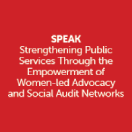
SPEAK Strengthening Public Services Through the Empowerment of Women-led Advocacy and Social Audit Networks
SPEAK is a four-year project implemented by Hivos in Southeast Asia, now Humanis, with the overall objective to institutionalize constructive and effective citizen participation in the planning and implementation of local budgets to better address structural poverty.The project was implemented in Semarang City and Bojonegoro District with national components added to it, namely citizen journalism and investigative journalism to other four cities (Jakarta,Bandung, Makassar, and Mataram).
The project invested in the capacity of local women groups to advocate for gender-responsive and inclusive budgets, and to facilitate social audit in order to improve accountability of public procurement and public services. Humanis with its consortium also strengthened local authorities’ capacity to manage public information and implement open procurement principles, notably by developing local regulations on complaint handling and open procurement/access to information. This will contribute to institutionalize and sustain access to information and multi-stakeholder communication in the long run beyond leadership changes.
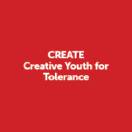
CREATE
The Creative Youth for Tolerance (CREATE) program aims to improve pluralism and tolerance in targeted seven state high schools (SMA) and three madrasah aliyah (MA) in each of the provinces of West Java (Bandung and Bogor), EastJava (Surabaya and Malang), and South Sulawesi (Makassar and Gowa). CREATE facilitates multiactor collaboration and partnerships to address interreligious and inter ethnic harmony.
CREATE will support the creation of an ecosystem of students, teachers, parents, school committees, school communities and CREATE facilitators at each target school community. CREATE will enhance the role of parents and school committees, as well as encourage cross-collaboration between schools and help to support the creation of a “community of practice” of schools through arts and culture. Furthermore, CREATE will provide safe space for students to reflect positive stories about the management of diversity across Indonesia and express through socially engaging artistic works.
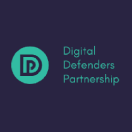
Digital Defenders Partnership (DDP)
The Digital Defenders Partnership (DDP) was initiated in late 2012 by the Freedom Online Coalition (FOC) to protect critical Internet users – human rights defenders (HRDs), including activists, bloggers, civil society organizations, journalists, and other users of Information and Communication Technologies (ICT) to defend human rights, and keep the Internet free and open.
DDP provides emergency response and sustainable protection funding; strengthens rapid responders and local protection networks and capacities and contributes to long-term organizational safety through our global team of Digital Protection Facilitators in several region including Asia, Latin America, and Southern & Horn of Africa (SHA).
Building Digital Security Capacity within Women and Minority Rights Defenders Community is a project aimed to improve the capacity and access of women and diversity of gender and sexuality communities (especially in non-Java Island) to safety and security of their operation in the face of emergency and emerging digital and non-digital threats.
This includes demands to mitigate threats surging from surveillance, internet shutdown, physical attacks, defamations, arrest and criminalization at human rights defenders (HRDs) and rights holders level, and simultaneously, coordinated support among the safety and security provider organizations in broader context. The crackdown of civic actors in defending their rights has been growing over the years. The rising authoritarian and semi-authoritarian regimes in several countries that devised the Covid-19 pandemic for their interests has exacerbated the threats and attacks towards civil society organisations and human rights defenders (HRDs).
Building Digital Security Capacity within Women and Minority Rights Defenders Community is a project aimed to improve the capacity and access of women and diversity of gender and sexuality communities (especially in non-Java Island) to safety and security of their operation in the face of emergency and emerging digital and non-digital threats. This includes demands to mitigate threats surging from surveillance, internet shutdown, physical attacks, defamations, arrest and criminalization at human rights defenders (HRDs) and rights holders level, and simultaneously, coordinated support among the safety and security provider organizations in broader context. The crackdown of civic actors in defending their rights has been growing over the years. The rising authoritarian and semi-authoritarian regimes in several countries that devised the Covid-19 pandemic for their interests has exacerbated the threats and attacks towards civil society organisations and human rights defenders (HRDs).
The growing political polarization has fueled intolerance towards and inciting violence against minority groups, while actors who make data available for the public, including journalists, bloggers, community media, communicators and whistle-blowers have been attacked by conservative groups and autocratic sympathizers. In the case of Indonesia, discrimination and violence against minority groups, the politicized use of defamation laws, disinformation campaigns targeting activists and escalated control over social media platforms are the most pressing challenges. While more women and diversity of gender and sexuality communities coordinate and express their opinions on the internet during the pandemic, the anti-feminist and misogynistic movements intimidated and attacked the communities through different forms of online Gender Based Violence (OGBV).
Diversity of gender and sexuality communities, especially those who are intersectionally marginalised, are at particular risk of being scapegoated, targeted, and attacked in this context.
SPEAK is a four-year project implemented by Hivos in Southeast Asia, now Humanis, with the overall objective to institutionalize constructive and effective citizen participation in the planning and implementation of local budgets to better address structural poverty.The project was implemented in Semarang City and Bojonegoro District with national components added to it, namely citizen journalism and investigative journalism to other four cities (Jakarta,Bandung, Makassar, and Mataram).
The project invested in the capacity of local women groups to advocate for gender-responsive and inclusive budgets, and to facilitate social audit in order to improve accountability of public procurement and public services. Humanis with its consortium also strengthened local authorities’ capacity to manage public information and implement open procurement principles, notably by developing local regulations on complaint handling and open procurement/access to information. This will contribute to institutionalize and sustain access to information and multi-stakeholder communication in the long run beyond leadership changes.
The Creative Youth for Tolerance (CREATE) program aims to improve pluralism and tolerance in targeted seven state high schools (SMA) and three madrasah aliyah (MA) in each of the provinces of West Java (Bandung and Bogor), EastJava (Surabaya and Malang), and South Sulawesi (Makassar and Gowa). CREATE facilitates multiactor collaboration and partnerships to address interreligious and inter ethnic harmony.
CREATE will support the creation of an ecosystem of students, teachers, parents, school committees, school communities and CREATE facilitators at each target school community. CREATE will enhance the role of parents and school committees, as well as encourage cross-collaboration between schools and help to support the creation of a “community of practice” of schools through arts and culture. Furthermore, CREATE will provide safe space for students to reflect positive stories about the management of diversity across Indonesia and express through socially engaging artistic works.
The Digital Defenders Partnership (DDP) was initiated in late 2012 by the Freedom Online Coalition (FOC) to protect critical Internet users – human rights defenders (HRDs), including activists, bloggers, civil society organizations, journalists, and other users of Information and Communication Technologies (ICT) to defend human rights, and keep the Internet free and open.
DDP provides emergency response and sustainable protection funding; strengthens rapid responders and local protection networks and capacities and contributes to long-term organizational safety through our global team of Digital Protection Facilitators in several region including Asia, Latin America, and Southern & Horn of Africa (SHA).
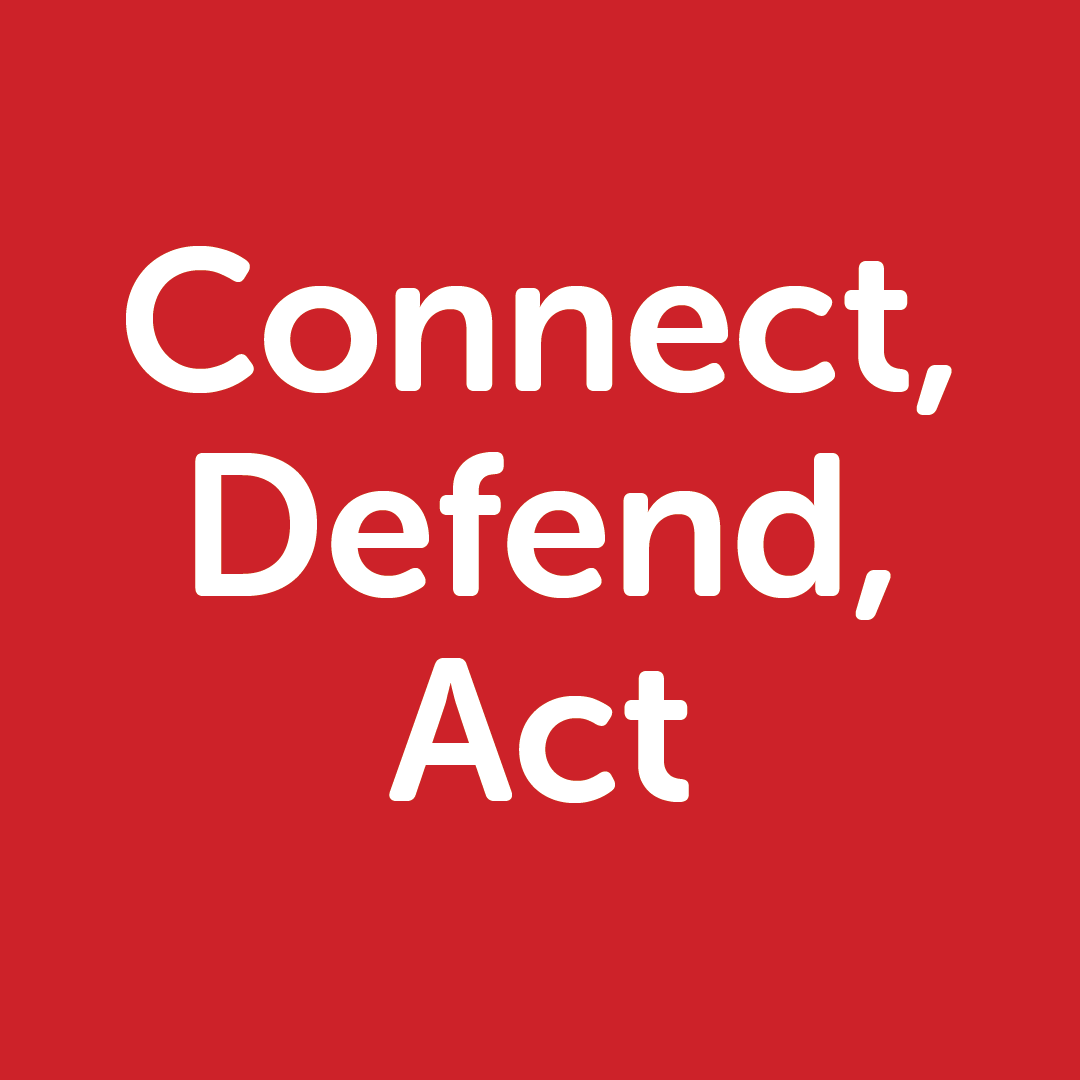
Connect, Defend, Act! (CDA)
- Promoting coalition building among diverse Civil Society Actors, including Human Rights Defenders, Rights holder-led civil society organizations, and independent media actors, grounded in civil society-led evidence gathering and knowledge production, and facilitated by context-specific Communities of Action.
- Contributing to safe and inclusive digital civic spaces for sustained collaboration and action among Civil Society Actors through localized holistic digital security capacity strengthening, knowledge production, and active referral to digital protection providers.
-
Increasing Civil Society Actors’ flexibility to rapidly respond to changes in civic space through organizational capacity strengthening and the provision of strategic funding for sustainable action.
- Promoting coalition building among diverse Civil Society Actors, including Human Rights Defenders, Rights holder-led civil society organizations, and independent media actors, grounded in civil society-led evidence gathering and knowledge production, and facilitated by context-specific Communities of Action.
- Contributing to safe and inclusive digital civic spaces for sustained collaboration and action among Civil Society Actors through localized holistic digital security capacity strengthening, knowledge production, and active referral to digital protection providers.
-
Increasing Civil Society Actors’ flexibility to rapidly respond to changes in civic space through organizational capacity strengthening and the provision of strategic funding for sustainable action.
Climate Justice
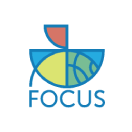
Fisherfolk Empowerment for Climate Resilience and Sustainability (FOCUS)
Fisherfolk Empowerment for Climate Resilience and Sustainability (FOCUS) desired change is to build the integrated coastal management for a sustainable food system for the fisherfolks community including women in Central Java, especially in 5 districts including Semarang, Demak, Kendal, Jepara and Batang.
FOCUS will strive to achieve stronger participation of coastal populations in target areas in Central Java in decision-making on coastal resource planning, provide advocacy to promote a more sustainable balance between the use and conservation of marine resources, and activities to improve local value-chains at local level. Hivos through Humanis in Indonesia leads the consortium that consists of several partners such as WALHI, KIARA, and PKSPL-IPB. The project is supported by NORAD (Norwegian Agency for Development Cooperation).
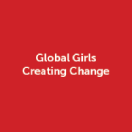
Global Girls Creating Change
The Global Girls Creating Change (G2C2) is a program that aims to foster and elevate a diverse movement of girl-centered climate action to lead, shape, and inform equitable, inclusive climate policies and actions. This is informed by an intersectional climate justice approach, with girls in all their diversity, and in particular girls from marginalized groups disproportionately affected by climate change, at the center.
The project is implemented by a global consortium consist of Hivos, Restless Development, and Yayasan Humanis dan Inovasi Sosial with In-County programming in Brazil, Indonesia, Nepal and Uganda, covering four geopolitical regions, and coalition programming reaching up to 25 additional countries. The program’s goal responds to the problem that girls are more vulnerable to the effects of climate change, yet have unequal opportunities to participate meaningfully in climate-related decision-making and benefit from equitable climate action.
It responds to the opportunity that youth-led movements have transformed the climate arena and there is space for a dedicated coalition of girls to shape the present and future of our response to climate change, in ways that address their priorities and demands. The project has three interlinked objectives over the 36-month period:
(1) To support girls, in all their diversity, to develop the skills and capacity to engage in and lead inclusive climate action.
(2) To foster a diverse coalition of girls from 4 in-country programming countries (above) and up to 25 coalition countries to participate in and influence equitable climate policies at local, national, regional and global levels.
(3) To provide grants, training and other support for girls in four countries to co-create climate innovations in their communities
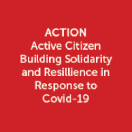
ACTION Active Citizen Building Solidarity and Resillience in Response to Covid-19
The ACTION Project is directly implemented by Hivos in Southeast Asia, now Humanis Foundation. The ACTION Project responds directly to the aim of the call: to increase the participation of CSOs in preventing, addressing and mitigating risks and vulnerabilities associated with COVID-19 crisis. We believe CSOs and CBOs are best placed to connect marginalised communities to government support, and fill in the gaps where government efforts fall short.
In implementing the action, Hivos, now Humanis, used its broad networks among CSOs, extensive experience working with some of the most vulnerable groups in Indonesia, and proven skills in facilitating collaboration between CSOs, the government and the private sector for policy change and service delivery. Humanis promotes the social inclusion of marginalised groups in community response efforts, and collaboration among different marginalised groups, to build solidarity and resilience for the future.The specific objective of the ACTION is: to enhance poor and marginalised community resilience and solidarity in responding to the impacts of pandemics.
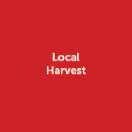
Local Harvest
Local harvest promoted the sustainable consumption and local food systems. The project enhances economic prosperity and poverty reduction in Indonesia by promoting a switch to sustainable consumption and production of green, healthy, fair and local food by consumer and MSMEs.
The Local Harvest project has promoted the ‘Pangan Bijak Nusantara’ campaign, based on 4 pillars: Fair (a supply chain where producers and consumers are more closely connected and prices are fair for both. The campaign increased awareness, activism and demand for ethically and sustainably produced local food. The project has proven to increase the number of producers and MSME supplying sustainable practices in 7 commodities (rice, sago, salt, coffee, forest honey, coconutoil, palm sugar).
Fisherfolk Empowerment for Climate Resilience and Sustainability (FOCUS) desired change is to build the integrated coastal management for a sustainable food system for the fisherfolks community including women in Central Java, especially in 5 districts including Semarang, Demak, Kendal, Jepara and Batang.
FOCUS will strive to achieve stronger participation of coastal populations in target areas in Central Java in decision-making on coastal resource planning, provide advocacy to promote a more sustainable balance between the use and conservation of marine resources, and activities to improve local value-chains at local level. Hivos through Humanis in Indonesia leads the consortium that consists of several partners such as WALHI, KIARA, and PKSPL-IPB. The project is supported by NORAD (Norwegian Agency for Development Cooperation).
The Global Girls Creating Change (G2C2) is a program that aims to foster and elevate a diverse movement of girl-centered climate action to lead, shape, and inform equitable, inclusive climate policies and actions. This is informed by an intersectional climate justice approach, with girls in all their diversity, and in particular girls from marginalized groups disproportionately affected by climate change, at the center.
The project is implemented by a global consortium consist of Hivos, Restless Development, and Yayasan Humanis dan Inovasi Sosial with In-County programming in Brazil, Indonesia, Nepal and Uganda, covering four geopolitical regions, and coalition programming reaching up to 25 additional countries. The program’s goal responds to the problem that girls are more vulnerable to the effects of climate change, yet have unequal opportunities to participate meaningfully in climate-related decision-making and benefit from equitable climate action.
It responds to the opportunity that youth-led movements have transformed the climate arena and there is space for a dedicated coalition of girls to shape the present and future of our response to climate change, in ways that address their priorities and demands. The project has three interlinked objectives over the 36-month period:
(1) To support girls, in all their diversity, to develop the skills and capacity to engage in and lead inclusive climate action.
(2) To foster a diverse coalition of girls from 4 in-country programming countries (above) and up to 25 coalition countries to participate in and influence equitable climate policies at local, national, regional and global levels.
(3) To provide grants, training and other support for girls in four countries to co-create climate innovations in their communities
The ACTION Project is directly implemented by Hivos in Southeast Asia, now Humanis Foundation. The ACTION Project responds directly to the aim of the call: to increase the participation of CSOs in preventing, addressing and mitigating risks and vulnerabilities associated with COVID-19 crisis. We believe CSOs and CBOs are best placed to connect marginalised communities to government support, and fill in the gaps where government efforts fall short.
In implementing the action, Hivos, now Humanis, used its broad networks among CSOs, extensive experience working with some of the most vulnerable groups in Indonesia, and proven skills in facilitating collaboration between CSOs, the government and the private sector for policy change and service delivery. Humanis promotes the social inclusion of marginalised groups in community response efforts, and collaboration among different marginalised groups, to build solidarity and resilience for the future.The specific objective of the ACTION is: to enhance poor and marginalised community resilience and solidarity in responding to the impacts of pandemics.
Local harvest promoted the sustainable consumption and local food systems. The project enhances economic prosperity and poverty reduction in Indonesia by promoting a switch to sustainable consumption and production of green, healthy, fair and local food by consumer and MSMEs.
The Local Harvest project has promoted the ‘Pangan Bijak Nusantara’ campaign, based on 4 pillars: Fair (a supply chain where producers and consumers are more closely connected and prices are fair for both. The campaign increased awareness, activism and demand for ethically and sustainably produced local food. The project has proven to increase the number of producers and MSME supplying sustainable practices in 7 commodities (rice, sago, salt, coffee, forest honey, coconutoil, palm sugar).
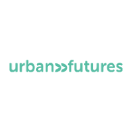
Urban Futures
Urban Futures (UF) is a 5-year global programme (2023–2027) at the intersection of urban food systems, youth well-being, and climate action. Urban Futures focuses on three areas: to influence and support the development and implementation of transformative urban food policies through multi-stakeholder platforms and youth movements; to shape new narratives that reimagine inclusive, climate-resilient cities to inspire behavior change and influence consumption patterns; and to enable young sustainable food entrepreneurs to flourish and increase financial flows towards inclusive, climate-resilient cities.
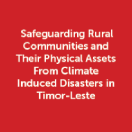
Safeguarding Rural Communities and Their Physical Assets From Climate Induced Disasters in Timor-Leste
Timor-Leste is highly vulnerable to climate changes, particularly increasing variability of rainfall and extreme weather events. Lives and livelihoods in the remote interior of the country and coastal regions are both highly exposed. Impacts of intensified extreme events include damage and degradation of decentralized small-scale critical infrastructure, particularly water supply and drainage structures, embankments, and feeder roads and bridges.
Damages leave rural populations isolated, lacking basic services. In response to this challenge, in 2019, the Government of Timor-Leste (GoTL) with the support of UNDP received funding from the Green Climate Fund (GCF) to implement the “Safeguarding rural communities and their physical assets from climate induced disasters in Timor Leste” project from 2020 to 2026. The project is represented by the Secretariat of State of Environment (SSE), under the Coordinating Minister of Economic Affairs, as the Implementing Partner with the main responsible parties/ministries being the Ministry of State Administration (MSA), Ministry of Agriculture and Fisheries, Ministry of Public Works (MoPW) and the Secretary of State for Civil Protection (SSCP).
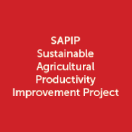
SAPIP Sustainable Agricultural Productivity Improvement Project
Climate justice is addressed in Timor Leste under theWorld Bank – funded SAPIP watershed agriculture development programme resorting under the Ministry of Agriculture and Fisheries, by working closely witha range of village communities in developing their own rights-based participatory land use plans and applying climate-resilient good agricultural practices that benefit all village farming families.
Activities have just been successfully finalised in the last project area, the Loes watershed, targeting around 180 farmer groups that were trained on agriculture production including livestock, horticulture and agroforestry.
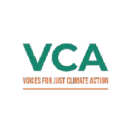
Voices for Just Climate Action (VCA)
The VCA Program works through three strategic interventions:
1) Mutual capacity strengthening for co-creating alternative scaled climate solutions (locally-based natural resource management, local food system, decentralized renewable energy, financial scheme that could reach local level);
2)Agenda-setting and movement in climate action through amplified storytelling; and
3) Joint lobbying and advocacy to make policy and financial flows responsive to locally shaped climate solutions.
Key ingredients of this program are Local ownership (supported by unexpected coalitions and alternative approaches), Climate justice through gender and intergenerational justice (taking women and youth leadership as key to hear the voices of the marginalized), and working with local civil society partners. We ensure that local civil society and underrepresented groups take on a central role as
creators, facilitators and advocates of innovative climate solutions
Urban Futures (UF) is a 5-year global programme (2023–2027) at the intersection of urban food systems, youth well-being, and climate action. Urban Futures focuses on three areas: to influence and support the development and implementation of transformative urban food policies through multi-stakeholder platforms and youth movements; to shape new narratives that reimagine inclusive, climate-resilient cities to inspire behavior change and influence consumption patterns; and to enable young sustainable food entrepreneurs to flourish and increase financial flows towards inclusive, climate-resilient cities.
Timor-Leste is highly vulnerable to climate changes, particularly increasing variability of rainfall and extreme weather events. Lives and livelihoods in the remote interior of the country and coastal regions are both highly exposed. Impacts of intensified extreme events include damage and degradation of decentralized small-scale critical infrastructure, particularly water supply and drainage structures, embankments, and feeder roads and bridges.
Damages leave rural populations isolated, lacking basic services. In response to this challenge, in 2019, the Government of Timor-Leste (GoTL) with the support of UNDP received funding from the Green Climate Fund (GCF) to implement the “Safeguarding rural communities and their physical assets from climate induced disasters in Timor Leste” project from 2020 to 2026. The project is represented by the Secretariat of State of Environment (SSE), under the Coordinating Minister of Economic Affairs, as the Implementing Partner with the main responsible parties/ministries being the Ministry of State Administration (MSA), Ministry of Agriculture and Fisheries, Ministry of Public Works (MoPW) and the Secretary of State for Civil Protection (SSCP).
Climate justice is addressed in Timor Leste under theWorld Bank – funded SAPIP watershed agriculture development programme resorting under the Ministry of Agriculture and Fisheries, by working closely witha range of village communities in developing their own rights-based participatory land use plans and applying climate-resilient good agricultural practices that benefit all village farming families.
Activities have just been successfully finalised in the last project area, the Loes watershed, targeting around 180 farmer groups that were trained on agriculture production including livestock, horticulture and agroforestry.
The VCA Program works through three strategic interventions:
1) Mutual capacity strengthening for co-creating alternative scaled climate solutions (locally-based natural resource management, local food system, decentralized renewable energy, financial scheme that could reach local level);
2)Agenda-setting and movement in climate action through amplified storytelling; and
3) Joint lobbying and advocacy to make policy and financial flows responsive to locally shaped climate solutions.
Key ingredients of this program are Local ownership (supported by unexpected coalitions and alternative approaches), Climate justice through gender and intergenerational justice (taking women and youth leadership as key to hear the voices of the marginalized), and working with local civil society partners. We ensure that local civil society and underrepresented groups take on a central role as
creators, facilitators and advocates of innovative climate solutions
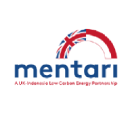
Mentari
The MENTARI Programme aims to deliver inclusive economic growth and poverty reduction in Indonesia by supporting the uptake of low-carbon energy with a specific focus on developing the low-carbon energy sector to best support disadvantaged communities, specifically those in Eastern Indonesia. For more insights and updates, visit mentari.info and subscribe to the MENTARI Newsletter
MENTARI focuses on 4 strands:
1. Policy Strand: Supporting policy improvement and capacity building for a better renewable energy business environment.
2. Brokerage Strand: Stimulating private investment in on-grid and off-grid renewable energy projects.
3. Demonstration Project Strand: Building small renewable energy pilot projects with gender and social inclusion to showcase rural electrification models.
4. Collaboration, Capacity Building, and Networking (CCBN): Fostering collaboration, raising awareness, and promoting best practices in gender and social inclusion for on-grid and off-grid renewable energy access.
The MENTARI Programme aims to deliver inclusive economic growth and poverty reduction in Indonesia by supporting the uptake of low-carbon energy with a specific focus on developing the low-carbon energy sector to best support disadvantaged communities, specifically those in Eastern Indonesia. For more insights and updates, visit mentari.info and subscribe to the MENTARI Newsletter
MENTARI focuses on 4 strands:
1. Policy Strand: Supporting policy improvement and capacity building for a better renewable energy business environment.
2. Brokerage Strand: Stimulating private investment in on-grid and off-grid renewable energy projects.
3. Demonstration Project Strand: Building small renewable energy pilot projects with gender and social inclusion to showcase rural electrification models.
4. Collaboration, Capacity Building, and Networking (CCBN): Fostering collaboration, raising awareness, and promoting best practices in gender and social inclusion for on-grid and off-grid renewable energy access.

